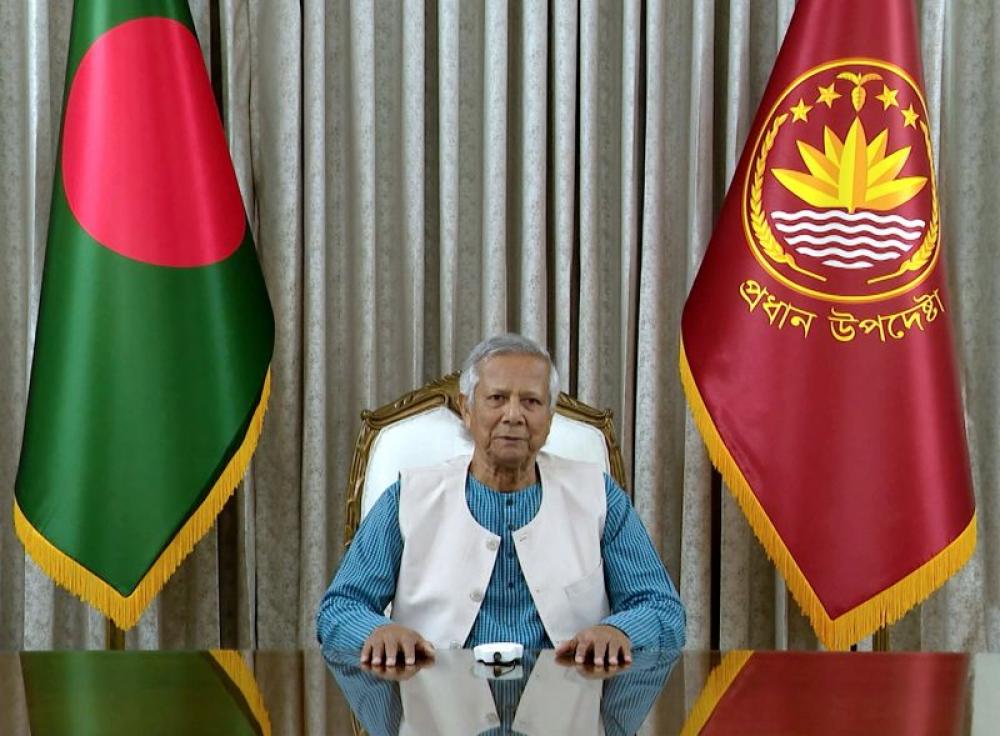Just Earth News | @justearthnews | 29 Nov 2024

Ex-USCIRF Commissioner Johnnie Moore targets Bangladeshi interim government over handling current crisis. Photo Courtesy: PID Bangladesh
Johnnie Moore, former Commissioner of the United States Commission on International Religious Freedom (USCIRF), has slammed the interim government of Bangladesh over the atrocities faced by minorities in the country and said the nation is currently facing an 'existential threat'.
Moore told ANI that this is a moment of “existential threat not only for the minorities of Bangladesh but for the entire country”.
Targeting the interim government, he said its chief Muhammad Yunus is 'failing' and there is not a single minority community in the country that does not feel threatened in Bangladesh now.
He said the global Christian community stands with the Hindu community in Bangladesh.
“Bangladesh isn’t just a Muslim country. It’s a Muslim-majority country that has many, many minorities. There isn’t a minority in the country that doesn’t feel under threat right now," he told ANI.
Speaking on the arrest of Hindu monk Chinmoy Krishna Das, Moore said: "That’s been globally evident in recent days as this high-profile arrest has taken place of not just a leader of the Hindu Bangladeshi community, but really a very serious religious figure. I think the perception is if they’ll go after him, they’ll go after any of us."
Criticising Muhammad Yunus over the manner he is handling the current situation in Bangladesh and the political crisis that developed over the past few months since former PM Sheikh Hasina's exit, he said, "As, the leader of the country, as the interim leader of the country, there are no aspirations for the Bangladeshi people."
"If you can’t manage a very, very simple component of civil society, which is you have to protect people, people have to be safe," he said.
"You certainly cannot have a vibrant democratic country…if the rule of laws becomes so inefficient that instead of getting due process, a lawyer is killed," he said.
He was referring to the murder of Bangladeshi lawyer Saiful Islam during a clash that broke out between followers of the Hindu monk and the police.
Police resorted to lathi charges to disperse the protesters who were demonstrating outside a Bangladeshi court recently where the monk was presented. The court sent the Hindu leader to prison after rejecting his bail plea.
The arrest of the Hindu leader has once again thrown Bangladesh into a deep crisis, months after PM Sheikh Hasina's government was ousted from power amid violent protest against her regime over a job quota row.
It is suspected that foreign hands were at play in orchestrating the unrest and planning Hasina's ouster.
Nobel laureate Muhammad Yunus-led government took charge of the country just three days after Hasina exited the country. Yunus, known for his closeness to the US Democrats, also accepted later in an event in America that there was “design and conspiracy" involved in the ouster of Sheikh Hasina.